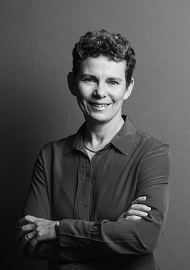About Us
Optimising brain function across our lifespan
For 20 years, the MARCS Institute for Brain, Behaviour and Development has led advances in our understanding of how the human brain develops across the lifespan and how it responds to visual, auditory, sensory and technological stimulus.
Our mission is to understand and optimise the brain wherever we are in our life. Our research makes a difference whether it be unlocking creativity, helping people process information and make effective decisions under stressful conditions, improving learning outcomes or detecting and treating brain disorders and diseases earlier.
We invest in state of the art laboratories, performance spaces and equipment and we bring together psychologists, linguists, engineers, biologists, performers and cognitive neuroscientists to collaborate with partners across health, defence, policy, data sciences and the arts.
Our location in Western Sydney and the breadth of expertise we draw from ensures our research is reflective of culturally and linguistically diverse communities, as well as people with a broad range of cognitive and physical abilities.
Our point of difference
Over five years, the Institute’s researchers have published almost 600 peer reviewed publications and contributed to assessment of ERA 4 Above World Standard, in four fields of research (Psychology; Linguistics; Electrical & Electronic Engineering; Creative Arts). More than 50% of research publications from the Institute include an author based at an overseas institution. Eighteen Australian competitive grants have been won and administered by MARCS Institute over the five years since our last review.
The Institute’s research is making a difference. For example, since 2017, the Institute’s research and innovation in biomedical technologies have been spun out three times and has appeared on the cover of leading journals. New assessment tools for child language production and reception have been designed for Australia’s diverse population. These tools – the OZI-SF and ERLI – normed by training Australian parents to record the data within the family setting are being used by allied health teams and primary health networks (GPs) around Australia. ‘Moody Tunes’, a Spotify-like-app for adolescents who are at risk of poor mental health, has been co-designed with young people. The Moody Tunes app combines self-selected music and mood tracking to support mental health literacy and awareness. The proof of concept is now in its next stage of development aiming for wider release. The “Smart Gloves” device, to support training in robotic surgery, is currently being trialled.
MARCS continues to bolster its reputation as an international leader in auditory and multimodal perception, cognition and lifespan development. Building on research excellence in core fields of research, the Institute continues to conduct world class basic research, provide exceptional research training for HDR students, postdoctoral fellows, and early career researchers.
The MARCS Institute Director, Professor Kate Stevens, FRSN
Kate Stevens is Professor in Psychology and Director of the MARCS Institute for Brain, Behaviour & Development at Western Sydney University. She holds BA (Hons) and PhD degrees from the University of  Sydney. Kate conducts basic and applied research into the learning, perception, creation, and cognition of complex, non-verbal sequences using the familiar and universal contexts of music and dance.
Sydney. Kate conducts basic and applied research into the learning, perception, creation, and cognition of complex, non-verbal sequences using the familiar and universal contexts of music and dance.
Kate has been a Chief Investigator on three Australian Research Council projects collaborating with members of the Australian dance industry, and applies methods from experimental psychology to investigate human-machine interaction (e.g., design/evaluation of auditory warnings; human-avatar and human-robot interaction). She is author of more than 140 articles, book chapters, and conference proceedings papers, among them an ebook on creativity and cognition in contemporary dance.



